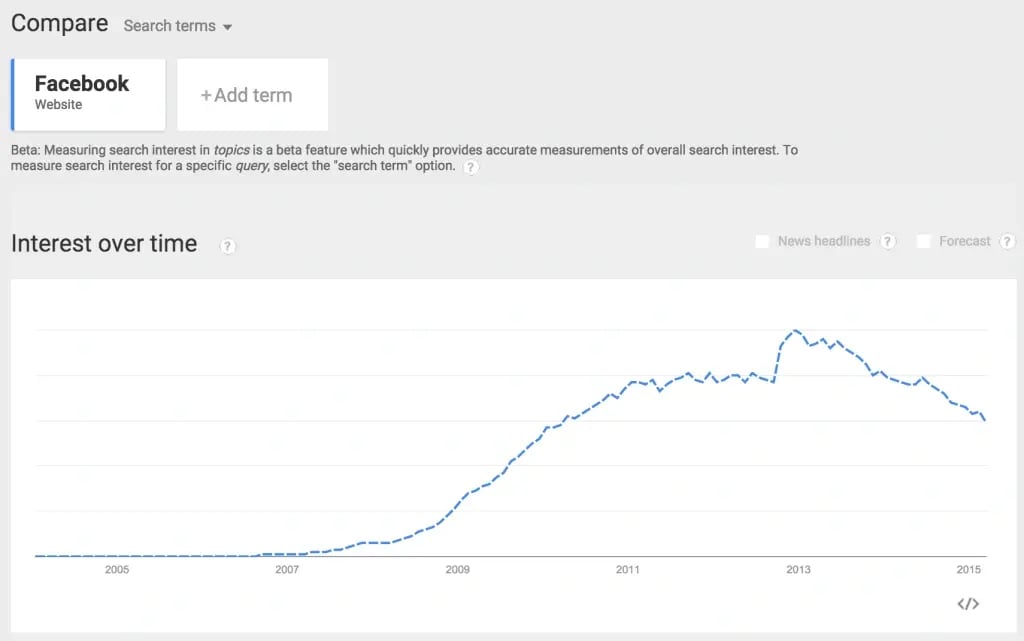A Simple SEO Guide For People Who Hate SEO [13 Point Strategy]
Getting your site to rank high in search results – thus validating your worthiness and attracting visitors – sounds appealing, but Search Engine Optimization (SEO) is easy to hate.
It has been historically and popularly known for cramming your site content with awkward keywords, looking spammy, and often producing no visible results. Furthermore, SEO can make your site rank worse or get you tossed out of search engines altogether.
Fortunately, today’s ‘white hat’ SEO is nothing like the SEO you may know and loathe. More and more, SEO means making your website stand out because of the value it provides. And that is something that anyone can get their head around.
With the above in mind, in this article we’re going to explore the simple steps you can take to ensure that your website is equipped to take its rightful spot in search engine rankings.

Why SEO Is Better than You Think
Search engines are not amused by ‘old school’ SEO. They are becoming increasingly capable at ignoring (and penalizing) SEO tricks, and at discerning what truly makes a website valuable. With that in mind, Google’s checklist of what it wants from a website is worth a read.
According to Google, for best SEO you should ask yourself, “Would I do this if search engines didn’t exist?” That’s a little disingenuous, since search engines consider not only your content, but also your website’s design, structure, title and image tags, links, inbound links, and visitor behavior.

Google: smarter than ever.
However, it’s true that aiming to please your site’s users – instead of search engines – conversely raises your odds of pleasing the search engines, and future-proofs your website against algorithm changes.
With the above said, here’s a quick look at the simple (non-hateworthy) basics of the new SEO.
Making Your Website Stand Out
In a nutshell: Make your site valuable enough that it deserves to be on page one of Google’s results.
1. Provide Valuable Content
Include unique, helpful, well-organized, high-quality information. Your focus should be on what matters to your visitors – give them what they are looking for.
2. Write Naturally
Use a normal tone and natural phrasing. Longer articles tend to rank higher and get linked to more often, but don’t be too concerned about word count – communicate what you want to say, then stop. Since search engines usually scan only the top third of a web page, make sure the top is content-rich.
3. Update Your Site Content Often
Add content as often as you can, whenever you have something worth sharing. It’s better to add content a little at a time instead of adding a lot at once and then nothing for a while, which may get you marked as “stale”.
4. Make the Most of Media
Use images and video effectively to increase engagement with your website. While the written word is far from dead, make sure that articles are broken up with enticing imagery, and use any excuse to include videos on your website.
5. Socialize Your Site

Facebook may not be at the peak of its popularity, but the social media machine as a whole shows no sign of slowing down.
Integrate social media with your site fully. A searcher’s results favor content shared by their own social circle, and the more social influence you have, the more likely your content will appear in search results. So make sure that people can flit from your website to your social media outposts (and vice versa), and make it easy for visitors to share your content with their friends, fans and followers.
Using Clean Website Design
In a nutshell: Make your website beautiful and easy to navigate.
6. Organize Your Page Structure with ‘Hub’ Pages
Have a ‘hub’ page for each of your site’s general themes, with pages about aspects of those themes radiating out. Search engines and site visitors will find it reassuring that your “Poodle Fun” page links to pages about “Games to Play with Poodles” and “Cute Hairstyles for Poodles”.
7. Create Links on Your Site Pages to Other Pages on Your Site
Use navigational links within your content. Search engines love navigational links – they help visitors and search engines find their way from page to page in a very natural manner. As a rule of thumb, every page should be linked to from at least one other page on your site, so long as related links can be made (don’t just create links at random).
8. Optimize the User Experience
Provide intuitive site navigation. Make it easy for people to get around your site, because search engines rank for engagement metrics – i.e. how long your visitors hung around and what they did.
Using Keywords Appropriately
In a nutshell: Employ the strategic use of keywords (but only when it is absolutely natural to do so).
9. Use Keyword Themes
Focus on specific areas and topics on separate pages. of your site. If your site is just a mass of pages that talk about poodles, with no clear distinctions from page to page, site engines will ignore most of your pages. As with ‘hub’ pages, a page with the keyword theme “poodle fun” should link to pages with related but deeper, more specific keyword phrases (“poodle games”).

…and use photos of poodles wherever possible.
Many tools (such as the free Google Keyword Planner) help you brainstorm keywords (and potential page subjects) and see how much search volume and competition they have.
10. Use Long-Tail Keywords
Choose one or more long tail keywords to focus on in each page of your site. Increasingly, search engines focus on discerning the question the user wants answered and providing the answer. Long-tail keywords are very specific – “history of exotic poodle grooming in France” — and may provide an answer to the user’s question. Fewer searchers will be looking for these words, but the ones who are will be the most interested in what your page offers.
In general, the more specific your keyword, the narrower your competition for search results, and the better chance you have to rank high.
11. Use Keywords in Your Page Title
Add a relevant keyword to each of your page titles. Keywords in your page title can definitely help in ranking, but search engines hate keyword-stuffed titles. So your title should describe what’s on the page, using the page’s keyword(s) to the extent you can naturally do so.
12. Use Keywords in ALT and Meta Description Tags
Use the ALT tag to provide text describing the image. Also write a meta description (the text that displays below the page’s title in the search results list) that uses your keyword. Plugins such as WordPress SEO by Yoast (if you’re using WordPress) help make this process easy.
Building Backlinks
In a nutshell: Obtain ‘organic’ links from influential websites by producing valuable content.
13. Create Quality Content and Tell People About It
Create quality content and tell people about it. Create “link bait” – especially useful, interesting or funny content that people are going to want to link to and share.
You need to market your site, since search engines rate your site on how visitors interact with it. As Google says, “Make sure all the sites that should know about your pages are aware your site is online.” Get the attention of bloggers and other media.
Conclusion
The hateable SEO of yore is no more, and you don’t need to have a technical bone in your body or money in your pocket to get the search engines to take notice – just provide a quality user experience.
The most important takeaway however is this: you do not need to get mired in the complications of ‘advanced’ SEO. If you stick to the fundamentals listed above and use them as a broad strategy, time and effort will result in positive search engine rankings. Better still, visitors will thank you for providing a genuinely useful resource.
Photo Credit: bullywhippit



